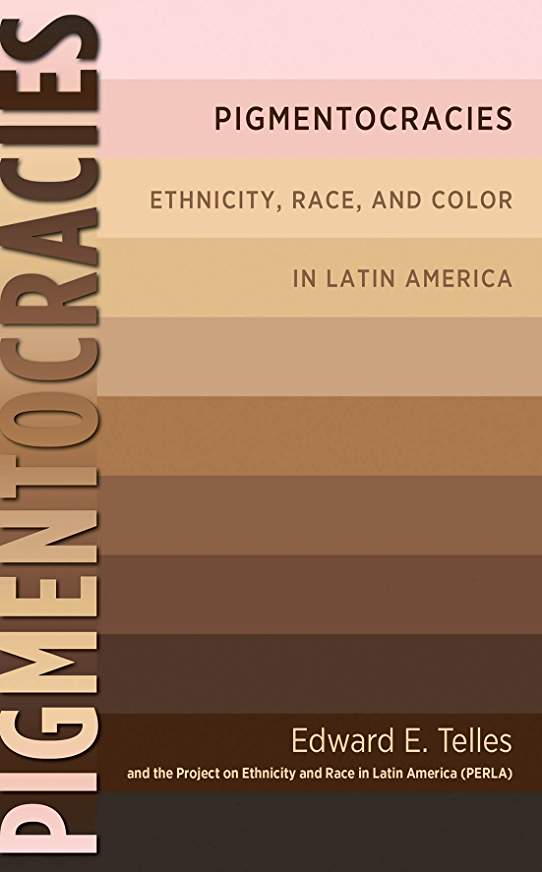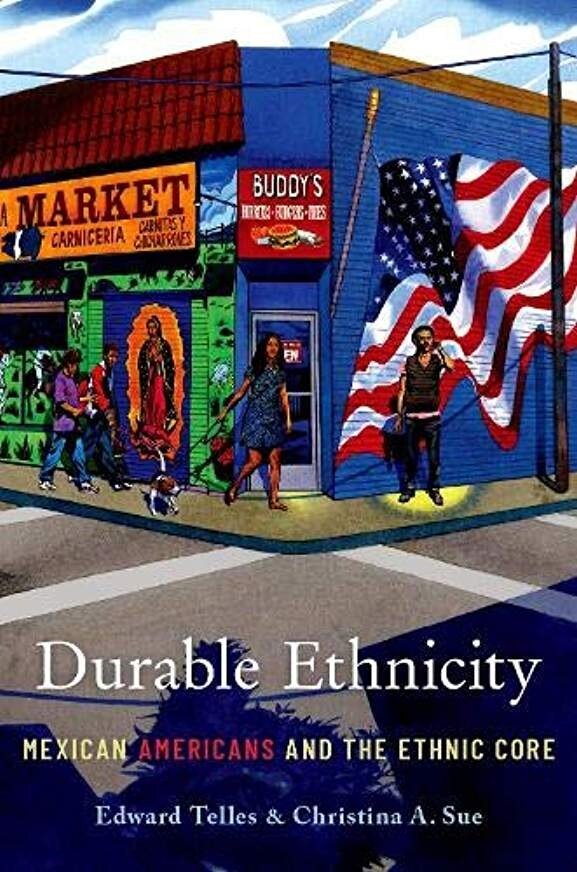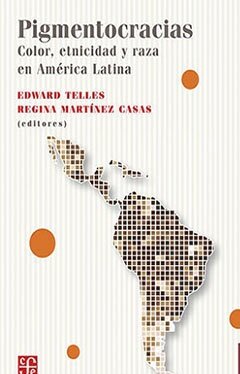The Trump Paradox: Migration, Trade, and Racial Politics in US-Mexico Integration explores one of the most complex and unequal cross-border relations in the world, in light of both a twenty-first-century political economy and the rise of Donald Trump. Despite the trillion-plus dollar contribution of Latinos to the US GDP, political leaders have paradoxically stirred racial resentment around immigrants just as immigration from Mexico has reached net zero. With a roster of state-of-the-art scholars from both Mexico and the US, The Trump Paradox explores a dilemma for a divided nation such as the US: in order for its economy to continue flourishing, it needs immigrants and trade.
RECIPIENT OF:
Distinguished Scholarly Publication Award for the Best Book in Sociology from the American Sociological Association, 2006
Otis Dudley Duncan Award for best book in Social Demography from the Population Section of the American Sociological Association, 2005
Oliver Cromwell Cox Award for the Best Book from the Race and Ethnic Minorities section of the American Sociological Association, 2006
Best Book Award from the Brazil Section of the Latin American Studies Association, 2006
Hubert Herring Award for the Best Book in Latin American Studies from the Pacific Council for Latin American Studies, 2005
Race in Another America: The Significance of Skin Color in Brazil
(Also available in Spanish, Portuguese and Japanese)
CLICK HERE FOR THE PORTUGUESE VERSION - PDF
Distinguished Scholarly Publication Award of the American Sociological Association Award.
In this sociological and demographic study, Edward Telles seeks to understand the reality of race in Brazil and how well it squares with these traditional and revisionist views of race relations. He shows that both schools have it partly right--that there is far more miscegenation in Brazil than in the United States--but that exclusion remains a serious problem. He blends his demographic analysis with ethnographic fieldwork, history, and political theory to try to "understand" the enigma of Brazilian race relations--how inclusiveness can coexist with exclusiveness.
The book also seeks to understand some of the political pathologies of buying too readily into unexamined ideas about race relations. In the end, Telles contends, the traditional myth that Brazil had harmonious race relations compared with the United States encouraged the government to do almost nothing to address its shortcomings.
RECIPIENT OF:
Otis Dudley Duncan Award for best book in Social Demography from the Population Section of the American Sociological Association, 2009
Distinguished Book Award from the Pacific Sociological Association, 2009
Best Book Award from the Latino Section of the American Sociological Association, 2009
International Migration Section of the American Sociological Association, Honorable Mention
Generations of Exclusion: Mexican-Americans, Assimilation, and Race
(Also available in Spanish)
Based on a thirty-five year longitudinal study, Generations of Exclusion measures Mexican American integration across a wide number of dimensions: education, English and Spanish language use, socioeconomic status, intermarriage, residential segregation, ethnic identity, and political participation. The study contains some encouraging findings, but many more that are troubling. Linguistically, Mexican Americans assimilate into mainstream America quite well―by the second generation, nearly all Mexican Americans achieve English proficiency. In many domains, however, the Mexican American story doesn't fit with traditional models of assimilation. The majority of fourth generation Mexican Americans continue to live in Hispanic neighborhoods, marry other Hispanics, and think of themselves as Mexican. And while Mexican Americans make financial strides from the first to the second generation, economic progress halts at the second generation, and poverty rates remain high for later generations. Similarly, educational attainment peaks among second generation children of immigrants, but declines for the third and fourth generations. Telles and Ortiz identify institutional barriers as a major source of Mexican American disadvantage.
Pigmentocracies: Ethnicity, Race, and Color in Latin America
(Also forthcoming in Spanish and Portuguese)
Pigmentocracies--the fruit of the multiyear Project on Ethnicity and Race in Latin America (PERLA)--is a richly revealing analysis of contemporary attitudes toward ethnicity and race in Brazil, Colombia, Mexico, and Peru, four of Latin America's most populous nations. Based on extensive, original sociological and anthropological data generated by PERLA, this landmark study analyzes ethnoracial classification, inequality, and discrimination, as well as public opinion about Afro-descended and indigenous social movements and policies that foster greater social inclusiveness, all set within an ethnoracial history of each country. A once-in-a-generation examination of contemporary ethnicity, this book promises to contribute in significant ways to policymaking and public opinion in Latin America.
Durable Ethnicity: Mexican Americans and the Ethnic Core
Mexican Americans are unique in the panoply of American ethno-racial groups in that they are the descendants of the largest and longest lasting immigration stream in US history. Today, there are approximately 24 million Americans of Mexican descent living in the United States, many of whose families have been in the US for several generations. In Durable Ethnicity, Edward Telles and Christina A. Sue examine the meanings behind being both American and ethnically Mexican for contemporary Mexican Americans. Rooted in a large-scale longitudinal and representative survey of Mexican Americans living in San Antonio and Los Angeles across 35 years, Telles and Sue draw on 70 in-depth interviews and over 1,500 surveys to examine how Mexicans Americans construct their identities and attitudes related to ethnicity, nationality, language, and immigration. In doing so, they highlight the primacy of their American identities and variation in their ethnic identities, showing that their experiences range on a continuum from symbolic to consequential ethnicity, even into the fourth generation. Durable Ethnicity offers a comprehensive exploration into how, when, and why ethnicity matters for multiple generations of Mexican Americans, arguing that their experiences are influenced by an ethnic core, a set of structural and institutional forces that promote and sustain ethnicity.
Just Neighbors?: Research on African American and Latino Relations in the United States
Blacks and Latinos have transformed the American city—together these groups now constitute the majority in seven of the ten largest cities. Large-scale immigration from Latin America has been changing U.S. racial dynamics for decades, and Latino migration to new destinations is changing the face of the American south. Yet most of what social science has helped us to understand about these groups has been observed primarily in relation to whites—not each other. Just Neighbors? challenges the traditional black/white paradigm of American race relations by examining African Americans and Latinos as they relate to each other in the labor market, the public sphere, neighborhoods, and schools. The book shows the influence of race, class, and received stereotypes on black-Latino social interactions and offers insight on how finding common ground may benefit both groups. From the labor market and political coalitions to community organizing, street culture, and interpersonal encounters, Just Neighbors? analyzes a spectrum of Latino-African American social relations to understand when and how these groups cooperate or compete.
Pigmentocracias. Color, etnicidad y raza en América Latina
Telles, Edward y Regina Martínez Casas (eds.)
Pigmentocracias surge como un esfuerzo interdisciplinario que forma parte del Proyecto de Etnicidad y Raza en América Latina (PERLA). Partiendo del contexto de racismo y discriminación que se vive en América, la presente obra busca desarrollar una fina metodología que explique esta realidad y su relación con la desigualdad. A su vez, busca marcar caminos que permitan solucionar este conflicto que, si bien es una cotidianidad que se experimenta en América Latina, también es una realidad que se vive en otras latitudes.







